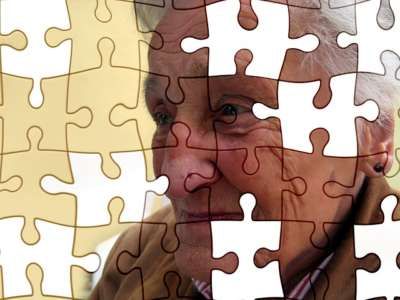Alzheimer’s disease
Alzheimer’s disease – Definition: Progressive and inexorable loss of the ability to think (dementia) due to a reduction in brain substance. Named after the physician Alois Alzheimer, who described the disease for the first time.
Alzheimer’s disease affects about one-fifth of all people in their eighth decade of life and older. Scientists predict that by 2040, there will be about four million people living with Alzheimer’s in Germany. It is the most common of the forms of dementia and its causes are unexplained.
The disease begins insidiously. Affected persons forget appointments and other appointments, do not remember what was discussed shortly before, and can no longer find their way around the notes they have made because of their forgetfulness. As the disease progresses, dealing with patients becomes more difficult, especially for family members. There are outbursts of rage, insults and physical attacks because the patients know less and less, even in familiar surroundings.
In this phase the mental performance fluctuates. In the morning, patients are often oriented for long periods and notice their malfunctions. Later in the day, confusion increases, but is occasionally interrupted by “bright” moments. Under the influence of the progressive disease, the higher brain functions are lost, the patients become incapable of communication and even close relatives misjudge them. In the final stage, they can no longer control the urge to urinate and defecate and are unable to move.
Alzheimer’s disease – treatment:
This dementia is not curable. The process can at most be slowed down with medicines or other therapeutic efforts.
Alzheimer’s disease – nursing interventions:
Since the nursing care of patients suffering from Alzheimer’s disease often extends over many years, a carefully prepared care plan, which is strongly focused on biographical details, is of central importance. Patients do not arbitrarily accept their changed behavior patterns.
The disease reveals personality traits that may have been hidden behind conformist social behavior in healthy days. In this sense, distrustful people increase their distrust, and someone who has tried all his life to keep his imperiousness in check now lives it to the fullest. Assessments by family members can help caregivers find a way to communicate with patients with Alzheimer’s dementia.
Notice:
When dealing with people with dementia, caregivers always remember that accusations, which are often made in a very harsh tone, should not be taken personally. Patients react with defense and all means at their disposal to situations in which they do not feel completely safe.
It is also important that caregivers abandon the idea of curative influence in their work with patients suffering from Alzheimer’s disease. Instead, they assume the function of companions in a process that is unstoppable and only ends with death.
